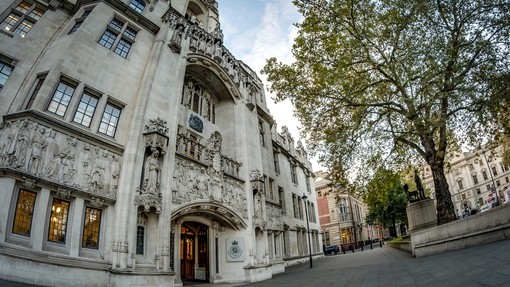Adjudication Enforcement Update - Stays of Execution & Dormant Companies

Adjudication Enforcement Update ~ Stays of Execution & Dormant Companies
WRB (N.I.) Limited -v- Henry Construction Projects Limited [2023] EWHC 278 (TCC) concerns an adjudication enforcement brought by a dormant company.
WRB is (and always had been) a dormant company. WRB (or another entity – see below) had been engaged as a sub-contractor by Henry to ‘design, supply, install, test and commission the mechanical, electrical and public health systems’. There had been multiple adjudication decisions with the first adjudication commenced by Henry against WRB. In the first adjudication, WRB had raised a jurisdictional challenge asserting that the correct party to the sub-contract was ‘WRB Energy Limited’. WRB lost the argument.
Unsurprisingly, when WRB commenced a subsequent adjudication against Henry it did so as ‘WRB (N.I.) Limited’. WRB was ultimately successful and the adjudicator decided that the true balance owed to WRB was £120,655.35 plus interest of £96.79.
Henry failed to pay the decision and so WRB commenced enforcement proceedings.
The enforcement
There are a few interesting issues that arose during the proceedings:
i) Firstly, WRB sought to argue that it was entitled to VAT on the award. This argument failed on the basis that VAT was not sought during the adjudication. The Court also found that “there is simply no evidence before the court to establish WRB’s entitlement to charge VAT.”
ii) Secondly, WRB amended its particulars of claim seeking to recover additional losses. Those additional losses were as a result of proceedings being commenced by the adjudicator to recover his unpaid fees. The Court refused to award these additional sums on the basis that there was no amended application for summary judgment or fresh evidence. The Court also found that it was too late to make an amendment to the summary judgment application or to serve fresh evidence.
iii) Thirdly, and the focus of the judgment, Henry sought a stay of execution on the basis that it had a cross-claim exceeding the amount payable to WRB. Henry argued that, if later successful on its cross-claim, Henry would be unlikely to recover the sums being paid out to WRB. As above, WRB was a dormant company.
In examining the third point, the Court applied the principles summarised by Judge Coulson QC (as he then was) in Wimbledon Construction Company 2000 Ltd -v- Vago [2005] EWHC 1086 (TCC).
(a) Adjudication … is designed to be a quick and inexpensive method of arriving at a temporary result in a construction dispute.
(b) In consequence, adjudicators’ decisions are intended to be enforced summarily and the claimant (being the successful party in the adjudication) should not generally be kept out of its money.
(c) In an application to stay the execution of summary judgment arising out of an adjudicator’s decision, the court must exercise its discretion … with considerations a) and b) firmly in mind (see AWG Construction Services -v- Rockingham Motor Speedway [2004] EWHC 888 (TCC)).
(d) The probable inability of the claimant to repay the judgment sum (awarded by the adjudicator and enforced by way of summary judgment) at the end of the substantive trial, or arbitration hearing, may constitute special circumstances … rendering it appropriate to grant a stay (see Herschell Engineering Ltd -v- Breen Property Ltd (unreported) 28 July 2000, TCC).
(e) If the claimant is in insolvent liquidation, or there is no dispute on the evidence that the claimant is insolvent, then a stay of execution will usually be granted (see Bouygues (UK) Ltd -v- Dahl-Jensen (UK) Ltd (2000) 73 Con LR 135, [2001] 1 All E.R. (Comm) 1041, CA and Rainford House Ltd -v- Cadogan Ltd [2001] B.L.R. 416).
(f) Even if the evidence of the claimant’s present financial position suggested that it is probable that it would be unable to repay the judgment sum when it fell due, that would not usually justify the grant of a stay if:
(i) the claimant’s financial position is the same or similar to its financial position at the time that the relevant contract was made (see Herschell); or
(ii) the claimant’s financial position is due, either wholly, or in significant part, to the defendant’s failure to pay those sums which were awarded by the adjudicator (see Absolute Rentals -v- Glencor Enterprises Ltd [2000] C.I.L.L. 1637).’
The Court refused the granting of a stay based upon (f)(i) above. The Court found that WRB’s financial position was the same or similar to its financial position at the time the contract was made. WRB had always been a dormant company, there had essentially been no change in circumstance which would justify the granting of a stay.
The Court made three key observations:
‘26.1 First, upon its own case, Henry Construction chose to place the sub-contract with a newly formed dormant company. The risk that it now complains of is, to quote Judge Lloyd’s observations in Herschell, the “inevitable consequence” of having placed this sub-contract with a dormant company. It is “the result for which it contracted.” As the deputy judge observed in Granada, it would be unfair and contrary to the spirit of the adjudication regime to allow Henry Construction now to escape its liability to meet an adjudication award on the basis of WRB’s essentially unchanged financial position.
26.2 Secondly, it was Henry Construction that resisted the argument that the true sub-contractor was WRB Energy Limited. It is not clear whether it considered there to be some forensic advantage in taking that line but it has essentially made its own bed.
26.3 Thirdly, this judgment became regrettably delayed behind a judgment in another very substantial TCC case. By the time it is handed down, Henry Construction will have had ample opportunity to establish its alleged entitlement upon its cross-claims.’
Discussion
An unusual aspect of this case was that it was brought by a dormant company.
Unlike a company that, for example, had become insolvent after the contract had been entered into; WRB’s financial position had not changed by the time of the enforcement. The Court therefore refused to grant the stay on the basis that Henry’s concerns about being unable to recover monies paid to WRB following any successful cross-claim was “the “inevitable consequence” of having placed the sub-contract with WRB - a dormant company.
There appears to have been a degree of scepticism from the Court about Henry’s position that it had contracted with a dormant company. As noted by the Court, “it is not clear whether it [Henry] considered there to be some forensic advantage in taking that line but it has essentially made its own bed”. This is perhaps an important reminder that if a position is taken in an adjudication, it can be extremely difficult (if not impossible) to later resile from that in subsequent proceedings. As noted by the Court, Henry had “essentially made its own bed”.
In terms of the key takeaways:
i) VAT – When commencing an adjudication, if in doubt as to whether VAT is applicable, it is prudent to ensure that any redress seeking sums in the adjudication is expressed as being “plus VAT (as applicable)”. Whilst non-committal; it leaves scope for the issue to be determined later by the Court if the parties cannot agree on whether VAT is applicable. If there is any substantive dispute on VAT it is advisable to consider whether expert evidence is needed (such as from a Chartered Accountant).
ii) Adjudicator’s Fees – The parties to an adjudication are jointly and severally liable for making payment of the adjudicator’s fees. Effectively, if one party fails to pay the adjudicator’s fees as directed the other party still retains a liability for making payment. An unpaid adjudicator will therefore normally sue both parties. As a claimant, it is generally advisable to ensure the adjudicator has been paid before commencing enforcement proceedings. If this means paying the sums ordered by the defendant, this can usually be claimed as part of the enforcement. The danger in not paying can be that further proceedings are commenced by the adjudicator. Depending upon the stage of the enforcement, it cannot (as in this case) be guaranteed that the enforcement application can be amended to recover these additional costs as a result of separate proceedings by the adjudicator. Generally, the best way of avoiding this scenario is to ensure that the adjudicator is paid before commencing any enforcement.
iii) Stays of Execution – It is notoriously difficult to successfully stay the execution of an adjudication enforcement. If seeking to argue for a stay on the basis that the claimant would, on a future cross-claim, be unlikely to repay any sums awarded; the Court will take into account the financial standing of the claimant at the time the contract was entered into. If the claimant’s financial position has not changed between the time the contract was entered into and the enforcement, the Court will likely not grant a stay. This is because the risk of subsequent non-payment by a claimant is simply “the result for which it [the defendant] contracted”.






